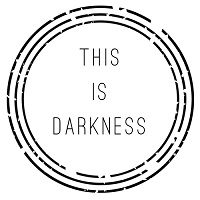Artist: Keosz
Album: AVA
Release date: 18 April 2017
Label: Cryo Chamber
Tracklist:
01. Aquitted from Illness
02. All I Had To Do
03. AVA
04. Downfall
05. Nothing Left But Gloom
06. Consigned To Limbo
07. Behind The Horizon of Preconceptions
08. Resurrection from the Dust
09. Equanimity of the Senses
10. The Took All I Had
11. Farewell To Hollow Space
In 2016 the Slovakian electronic artist Keosz first appeared on Cryo Chamber with his album Be Left To Oneself. Since 2010, Keosz has been releasing a variety of singles and EPs through varies labels. He won the Radio Head Award for best electronic artist in 2016 for his work through these various projects.
Be Left To Oneself was Keosz‘ first real venture into dark ambient. On his dark ambient debut, we heard a fairly uniform style throughout the album. Keosz delivered a collection of melancholic droning ambient tracks, perfect for reminiscing one’s past. The sound Keosz produced had a unique atmosphere in that it was simultaneously downtrodden, and yet uplifting. For me, it was the most fitting when traveling through the city by metro. Watching a sunset over a cityscape alone, yet surrounded by people and modern technology.
AVA starts out in a similar vein as Be Left To Oneself. The first few tracks follow the same formula and ultimately evoke the same set of feelings. Yet, this time around there is a noticeable shift after the first half of the album. As we move into “Consigned To Limbo” Keosz changes everything. The track starts out calm with a bit of field recording sounds and a very gentle airy drone. This is the first time I can recall any real use of field recordings in Keosz‘ music. Two minutes into the track an electric guitar enters the mix. Again, this seems to be a first for Keosz. The guitar gently strums the same notes gradually increasing in volume and intensity. By the time it has moved to the front and center of the mix, it has added such an emotional charge that one can’t help but feel moved.
As AVA continues through the second half of the album, we are repeatedly presented with the use of the electric guitar. In fact, often the album takes on an energy and template that would be a perfect fit in a post-rock band. Similarities to acts like Caul could easily be found. Even comparisons to bands like Explosions in the Sky or This Will Destroy You would not be misplaced.
Keosz creates something in AVA that has been tried on more than one occasion. But on this album this artist perfects the formula. The combination between dark ambient and post-rock elements is flawless. The soundscapes move from introverted to highly energetic and back again in such a natural way that the transitions are often hard to notice.
These dynamics of AVA are quite a pleasant surprise. All the elements that made Be Left To Oneself such a gorgeous album are still present. Yet, AVA offers so much more. It is alive with emotion on a whole new level for this artist.
Cryo Chamber has slowly shifted over the last year from a label which strictly focused on cinematic dark ambient to one that gives a home to all sorts of different ambient music projects. Keosz and Phonothek both made their debuts last year on Cryo Chamber and each were quite surprising in their deviation from the norm. Yet, this year with both of their sophomore efforts being released back to back, we find in both that there has been abundant growth. Both projects took what made their debuts so interesting and went much further with their innovations.
AVA will likely be heralded as the greatest work yet by Keosz, an artist who already has quite a following. It will be very interesting to see where he takes his style in the future, because it seems that this artist has much more to offer than may have initially been realized. Between the heavier use of field recordings and the introduction of overt post-rock elements, Keosz will be finding many more listeners receptive to his sound. AVA is surely one of the best albums I’ve heard yet this year. It is bound to find a similar place in the hearts of many other listeners.
Written by: Michael Barnett

